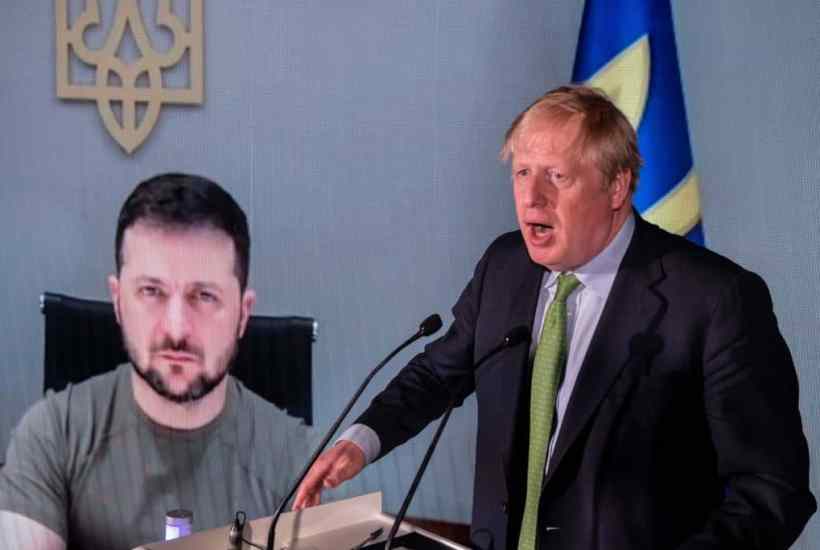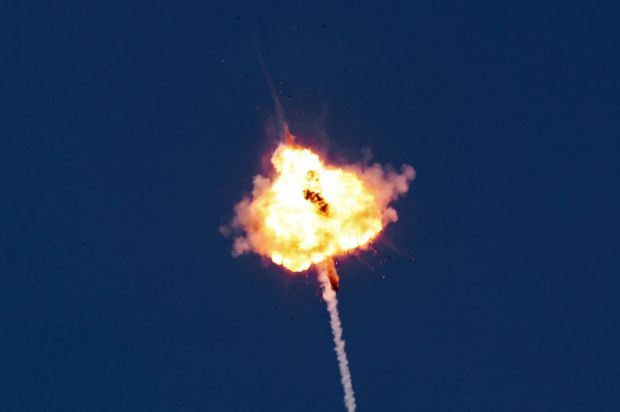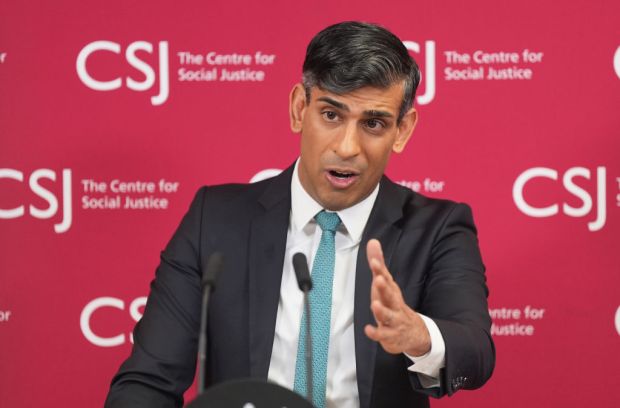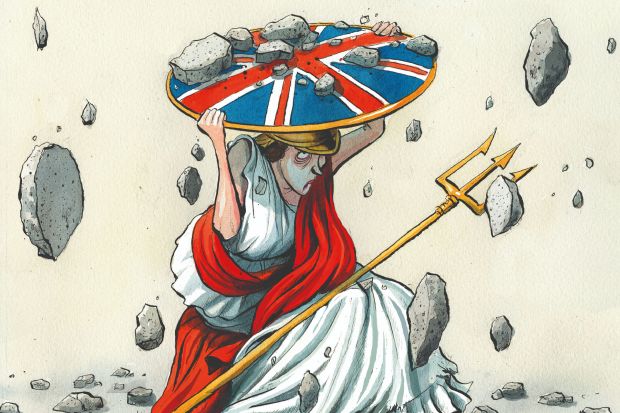Boris Johnson has been accused of shamelessly using the war in Ukraine for his own political ends. The timing of his contacts with president Volodymyr Zelensky suggests there is plenty of evidence to support this claim. At the end of last week, within hours of his ethics adviser’s resignation, Johnson ducked out of a planned meeting with Northern MPs in favour of a day-trip to Kyiv.
The timing of Johnson’s conversations with the Ukrainian president, Volodymyr Zelensky, have certainly rung alarm bells. All too often, Downing Street’s announcements about his telephone chats with Zelensky have usefully diverted attention from the particular difficulty Johnson was facing at the time and on to his role as international statesman
Downing Street has strongly denied this was ever done deliberately, saying Zelensky had many claims on his time and it was his availability that dictated the timings. Whatever the truth, there’s no doubt that Johnson has had a ‘good war’, so far. The Prime Minister has shown a speedy, forthright and consistent reaction to the Russian invasion. He has set a clear tone for the UK’s national response. Why should he not build, just a little, on that political capital?
Nor is he alone. From the moment Zelensky appeared, unshaven in what was to become his trademark khaki T-shirt and tartly rejected a US offer of exile, with the immortal words that he needed ‘ammo not a ride’, the Ukrainian president has established himself not only as a formidable national leader, but as the darling of a West hungry for heroes. Johnson is by no means the only leader of a Western country to have sought a part of the Zelensky phenomenon by trekking more than once to Kyiv.
But it would be wrong to see only cynical appearance and no substance in what could fast be developing into a special relationship, both between Johnson and Zelensky, and London and Kyiv.
Exploiting the UK’s new freedom not to have to wait for an EU consensus, Johnson was an early and enthusiastic supporter of Zelensky’s stand against Russian aggression. He was one of the first foreign leaders to visit Kyiv in person, when it was nothing like as (relatively) safe as it is today. He was one of the first foreign leaders to offer weapons. He may also be the only foreign leader to have taped a video address to the Ukrainian parliament, in a nice touch that reciprocated Zelensky’s Zoom speech to Westminster MPs.
Yes, there is much posturing here for the benefit of a home audience hugely sympathetic to Ukraine. But there is more to the Johnson-Zelensky relationship than a desire on Johnson’s part either to bask in reflected glory or to deflect attention from his domestic difficulties, although those aspects undoubtedly exist. The two genuinely seem to enjoy each other’s company. And as politicians with a creative side, they have more in common than meets the eye. Zelensky has long shown himself to be an enormously appealing character: intelligent, imaginative and bold, and a gifted communicator with a popular touch. That is largely how he won the 2019 election, against all the odds.
Whether or not you discern some of these same qualities in Boris Johnson – some will and some won’t – matters less than the fact they are traits he clearly admires. Nor, given Johnson’s fascination with Churchill, is it hard to imagine that Johnson sees Zelensky as a model for the war leader he would aspire to be, should that sort of destiny ever call. Might there even be a sliver of envy that in his courage and eloquence Zelensky has more than risen to his historic challenge?
The appeal does not just go one way. As Foreign Secretary, Brexiteer and Prime Minister, Johnson has shown a risk-seeking, unreliable, at times reckless, side. Yet this coexists with a personal affability and cultural sensitivity that can be significant assets in foreign diplomacy. Zelensky may in time be proved wrong, but he seems to have found an affinity with Johnson he has not found with other leaders. Ukraine’s leader also sees Boris – however strange this may sound to British voters – as someone who, unlike certain other leaders of his recent acquaintance, keeps his word. Complaining recently about the weapons Ukraine had been promised, but still not received, Zelensky went out of his way to compliment the UK as an honourable exception.
You might well ask here what could happen if the tide of the war were to turn even more against Kyiv than it already has. Or what might happen if Zelensky were to fall out of favour with Ukrainians, perhaps by seeking peace on terms many could not accept. How constant a friend would Boris Johnson turn out to be then, either to Zelensky himself, or to Ukraine?
This leads on to the second dimension of this budding special relationship: its place in the UK’s still-evolving post-Brexit foreign policy. In his support for Ukraine, Boris Johnson has acquired added status and a useful diversion from other troubles from his support for Ukraine; meanwhile, Ukraine has obtained from the UK some of the weapons, intelligence and military training it so badly needs. (Some of the weapons and the training, incidentally, go back several years before the 24 February Russian invasion.)
But the UK has obtained something else, too. The war in Ukraine has provided a test of how far, even whether, the UK can operate as an autonomous foreign policy actor. So far, it could be said to have passed that test. Under Boris Johnson, the UK came out at once as an unqualified advocate for Ukraine. Some statements from the Foreign Secretary, Liz Truss, and the Defence Secretary, Ben Wallace, have been way too simplistic for my taste, but that is another matter.
The point is that, on Ukraine, the UK seems to have followed what some see as its post-Brexit ambition to ‘disrupt’ the diplomatic status quo. It was out ahead of the EU, whose members are still sending mixed messages to Kyiv. It was more consistent than the US and avoided some of Washington’s rhetorical mistakes (about an end-game to weaken Russia, for example). It led cheers for Nato unity, without actually having to do much, because Nato, as an alliance, has insisted that it will not fight for Ukraine.
Under Johnson, the UK also appears to have taken a gamble on an almost complete break with Russia, at least so long as Vladimir Putin remains in power. There is nothing from London, as there is from Berlin and Paris, about keeping channels open to Russia, because Russia will still be there when the war is over. In a reprise of the 20-year-old arguments about EU enlargement, the UK has aligned itself more with ‘new’ Europe than old.
Only a few hours before Boris Johnson’s fleeting visit to Kyiv last week, Zelensky received an awkward quartet, made up of the leaders of France, Germany, Italy and Romania. They came, it appeared, in a belated expression of EU unity, bearing promises of a path to membership for Ukraine. If there was an ulterior motive that spurred Johnson to set off for Kyiv, I rather suspect it was less to deflect from any ethical troubles at home, than to ensure that the UK continued to figure prominently on Zelensky’s diplomatic map.
Got something to add? Join the discussion and comment below.
Get 10 issues for just $10
Subscribe to The Spectator Australia today for the next 10 magazine issues, plus full online access, for just $10.




















Comments
Don't miss out
Join the conversation with other Spectator Australia readers. Subscribe to leave a comment.
SUBSCRIBEAlready a subscriber? Log in